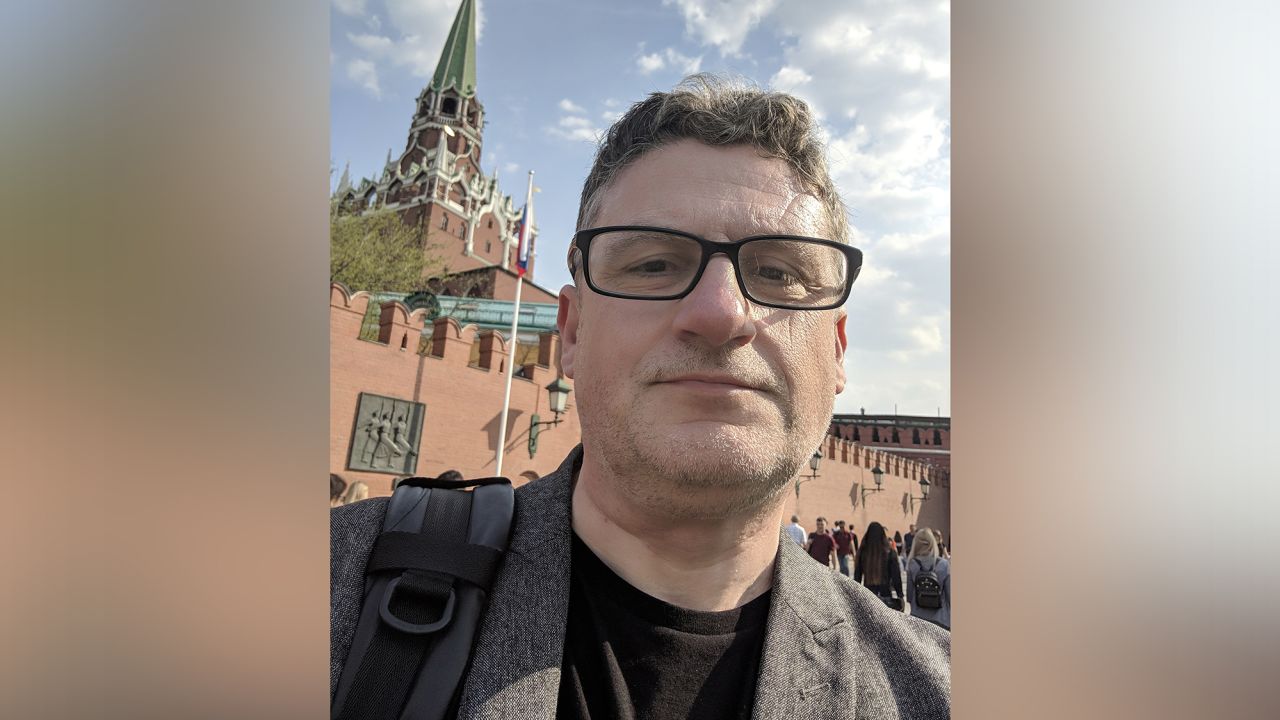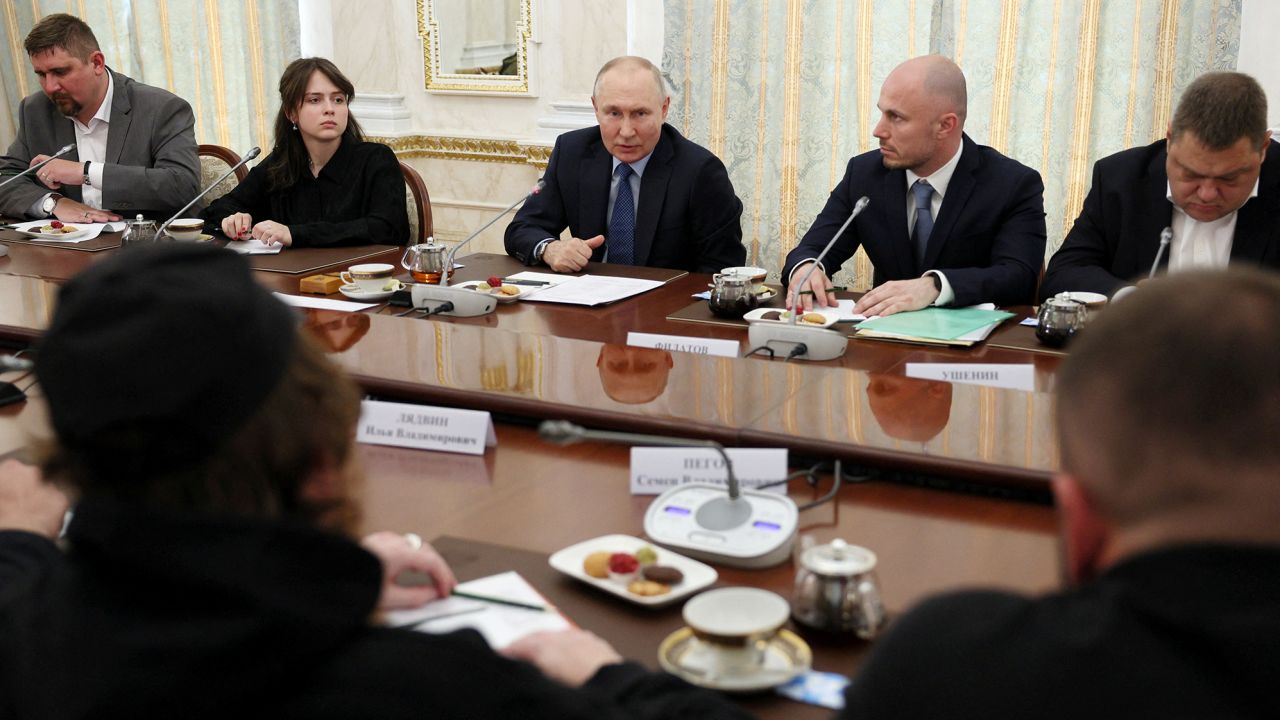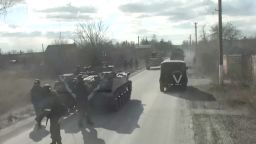Editor’s Note: Mark Galeotti is the executive director of the consultancy Mayak Intelligence and an honorary professor at University College London. He is the author of several books on Russian history, most recently “Putin’s Wars: from Chechnya to Ukraine.” The views expressed in this commentary are his own. View more opinion on CNN.
When Russian President Vladimir Putin sat down last week with a mix of official war correspondents and bloggers, he was implicitly acknowledging three things: that the Kremlin is having trouble spinning its war in Ukraine, that unofficial commentators are in their own way as powerful as the state media machine and that the confident official narrative is failing to get much traction.

Of course, all political leaders are having to adapt to an increasingly fragmented media space – tweeting more often than putting out press releases, and wooing online influencers as assiduously as newspaper editors.
However, in Russia there is a particular issue: Russians have long become used to being lied to by their state. They have developed an ingrained cynicism and habitually look for alternative voices.
During the 1979-89 Soviet war in Afghanistan, for example, it was the grapevine. One mother of a Russian soldier recounted to me how she had been told by authorities at the time that her son had died in a training accident. Eventually, the grandmother of one of his squad mates got word to her that he had actually been killed when his truck hit a mine on the treacherous Salang Highway.
Now, though, Russians who want news about the war – and many, in fairness, would rather remain ignorant as much because it is depressing as because they would rather not be faced with tough moral choices – turn to the internet. Even before the war, almost half got their news from social media, with the proportion having risen since the invasion. Meanwhile the viewership of TV news has declined.
The informal, online contingent of the so-called “voenkory” or “military correspondents” – although many are more commentators than reporters – have emerged as significant and distinctive in shaping understandings of the war.
Former journalist Semyon Pegov, behind the WarGonzo Telegram channel, for example, has over 1.3 million subscribers. Pro-Kremlin Ukrainian blogger Yury Podolyaka, who moved to Crimea after the Russian annexation, has 2.7 million followers. Both were at Putin’s meeting.
Indeed, it is not just Russians who turn to the voenkory for some sense of the situation. Western news media and organizations often draw on them for information or, indeed, report on their opinions as news in their own right.
They have thus become powerful not just in shaping the domestic narrative, but also in the Kremlin’s wider information war. Even Putin has come to realise that to spin his message, he can no longer stick to the official media.
Hence his carefully-choreographed sit-down with a group hand-picked from both the official war correspondents and the online voenkory. Noticeably absent were partisans of Yevgeny Prigozhin, the increasingly-outspoken figure behind the Wagner mercenary group, or the so-called ‘turbopatriots’ like Igor ‘Strelkov’ Girkin – nationalists who supported the invasion but have become vociferously critical of the clumsy and amateurish way they believe it has been fought.
Instead, these were ‘war bloggers’ still depending on the authorities’ good will for access to the front line or hoping to parlay their informal profile into official positions. They could be counted on to stick to the script and not embarrass the president, but it still proved an awkward conversation.
The 70-year-old Putin’s efforts to be chummy with the young voenkory not only failed to land, but very much made it seem that he needed them rather than vice versa.
It also hinted at an insecurity. At times, Putin seemed unaware of the details of the war he so notoriously tries to micromanage, and at times keen to distance himself from it.
Whatever might be going wrong was, of course, always someone else’s responsibility. Incursions into the Belgorod region? Lessons should be learned by those responsible for border security. Is enough being done to promote new blood in the military? He’s certainly told the minister to expedite this, but there’s a complex bureaucracy to get round. One could be forgiven for assuming he was lining up scapegoats in case things go wrong.
Get our free weekly newsletter
These days, a disengaged Putin rarely holds press conferences or even gives interviews. Nonetheless, the spectacle of relatively young war bloggers in baseball caps and t-shirts getting more access to him than Kremlin press pool reporters has not passed without notice. One aspiring “voenkor” told me that “this is a sign that we are becoming the media.”
It is also a sign of weakness on the part of Putin and the state. They are failing to shape the narrative, unable to inspire the majority of the population with their claim that the war is an existential challenge to Russia’s very survival.
The Kremlin cannot even control the voenkory, just hope to co-opt them.
As the war grinds on with little real hope of Russian victory (and distinct fears of defeat), Putin is not (yet) under threat – but clearly has lost his connection with his people.

